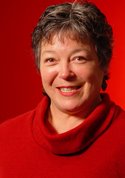Nurse's Story: Susan - The Symphony
Susan -

I spent a lot of time as a hospice nurse. Expert hospice nurses know how to advocate for the dying patient. It doesn’t matter what my perception of dying is, or the family’s perception, it’s the dying person who needs to be able to go out the way they want to. As a hospice nurse I was like the conductor of a symphony. I needed to make sure everybody was on the same song. I couldn’t have some people playing the Star Spangled Banner and others playing songs by the Dixie Chicks and somebody else playing Kenny G. I would take up the baton and say, “Listen everybody. Here’s the song we’re playing. This is the person who has decided what the song will be.”
I’ve spent the last 15 years of my career in education. It’s the longest I’ve ever worked for one employer. I’m currently the associate dean for nursing at a community college. We are close to 200 nursing students, not counting the pre-nursing students. We base acceptance on grade point, I do the numbers and that is how I decide where to place the few that get in the program. We had 835 applications last year to fill less than 100 nursing student positions. So it’s a numbers game, and I love numbers.
I’ve been at this job for so long because I discovered it is where I need to be. I’m very good at it. People will say, Oh, you must love your job.” It’s not so much I love it, it’s just where I’m supposed to be because this is what I do well.
Patricia Benner wrote a book called Novice to Expert. She talks about how nursing maturation happens . It’s like a pebble dropped in the water with concentric circles going out from the point of entry. Novice nurses can only attend to that one spot in the middle, and it’s hard for them to see the greater parts that are out there. When I was a novice nurse, I didn’t know what I didn’t know. I saw one way of doing things and didn’t even think there could be a different way. I worked in an operating room where it was okay for doctors to literally throw things at me and to make sexual comments. It was like a dysfunctional marriage and I was a battered wife.
It was only after working in several different organizations and in various jobs that I learned how nurses should be treated and developed the confidence to stand up for myself and demand respect. We now know to educate our daughters to realize what civility looks like and how they should be respected at work and in life.
Sometimes students will say to me, “That clinical instructor was really mean. I don’t understand why she’s doing this. I listen to the student, then I ask them to flip to the shoes of the clinical instructor.”“I make a point of never answering any of their questions. I always ask another question. It helps to pull the inner strength out of them, by getting them to think and resolve their own issues.” I ask, “Why do you think she would do that. What do you think you should do about that?” I make a point of never answering any of their questions. I always ask another question. It helps to pull the inner strength out of them, by getting them to think and resolve their own issues. I feel it’s my job as an educator. It goes back to giving the student power. I believe many of the women coming into nursing have subservient personalities. They are co-dependent in some way. We say we want to empower nurses so they’ll be stronger, but we’re not finding strong women to come into nursing, some tend to be weak. They come to nursing to be cared for, not primarily to care for others.
If we find dysfunction in the nursing profession, we have to ask if it is the workplace’s responsibility or is it education’s responsibility or is it the nurse’s responsibility? On one hand, I think we can bring a person along and try our best to make them the nurse we want them to be, but they have to have something there to start with, some things that are innate. It’s like bringing a potential student to my door with a deficit in math skills and telling me I’ve got to fix it. It’s not always a matter of bringing them up to speed in math. Sometimes we have to go all the way back to elementary school and give them the positive math experiences that allow them to want to learn math. I can build on a math strength, but I can’t fix a math deficiency. The same holds true for personalities and learned behaviors.
As an educator, I tell students, “if you think nursing is all about holding and coddling your patients and all you do is take care of them, then you’re not in the right program. I tell them their job is to empower their patients to heal. And I empower the students. I give the students the right to fail, but if they make the wrong choice, they need to deal with the consequence. No matter what they are struggling through, I’ll be there to support them but I’m not going to take it over. I don’t allow faculty to embrace and care and take over when the going gets tough, because then they disempower students. We need to teach students to stand on their own two feet, so they feel powerful when they leave the school. We want to give the student the ability to conduct their own nursing symphony.
Power Strategies: Empowerment, Leadership, Strength
go back to main page


